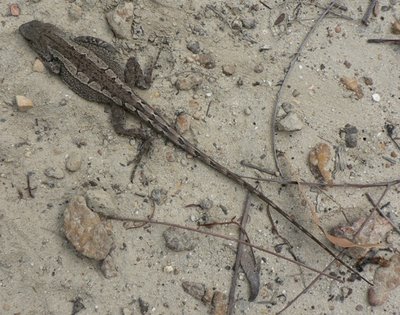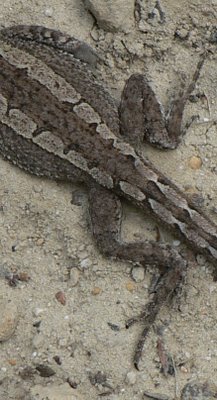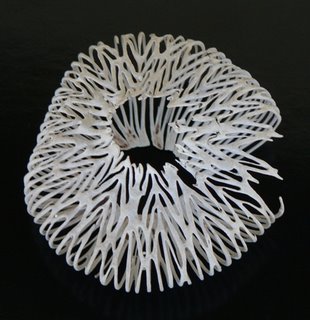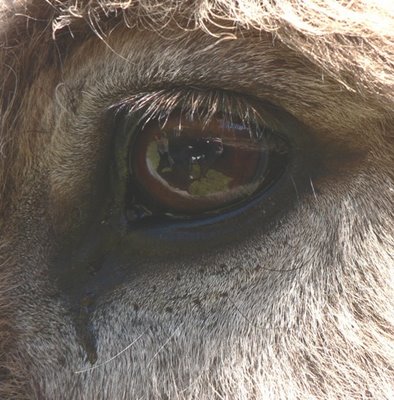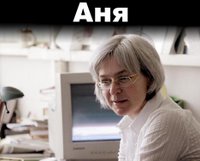The hotel is a block from King's Cross and described as 'Sydney’s most exclusive boutique hotel ...available to the budget conscious traveller'.
Tasteful, minimalist decor. Above the big inviting bed is a Cocteau poster of a man running his tongue up a man's neck. So far so good. Looking for a phone book, there wasn't one, nor any guidebooks except one book, placed on the tiny bedside table in the cup of tea space —

'PLACED BY THE GIDEONS', the cover says.
The public hospital has a shelf above each bed. And on the shelf is:

The cover says: 'THINKING OF YOU
THE GIDEONS'
These books are a wonder. I always like to open books of wisdom as they wish, and put my finger down as it falls, as that's the best way to get a real feel of the gist of the thing. On the first book, I did it again just now and hit smack in the join of two verses.
'If you fear the Lord and serve Him and obey His voice, and do not rebel against the commandment of the Lord, then both you and the king who reigns over you will continue following the Lord your God. However, if you do not obey the voice of the Lord, but rebel against the commandment of the Lord, then the hand of the Lord will be against you, as it was against your fathers.'
What a different world it would be if this were the bedside book:

Or Robert Louis Stevenson's A Child's Garden of Verses
or Sonia Uvezian's Recipes and Remembrances from an Eastern Mediterranean Kitchen,
or Robert S. Ball's Star-Land
or Mary Kingsley's Travels in West Africa
or the Rev. J.G. Wood's Wonderful Nests
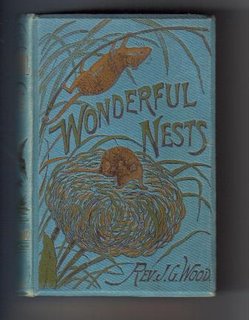
I'm sure that you have a list of books that would be wonderful to meet you, when you are in a strange bed, away from home, possibly at a low point in life and health.
Which brings me to the ongoing postings and discussion in Hal Duncan's blog, currently up to issues of sacrilege, profanity, art, and power in The Power and the Piss.
Now, when the term 'secular fundamentalist' is being used more and more around the world, I think this series is tremendously important, as these issues should be exercising all of our minds since we cannot avoid the consequences of not being involved. The assumption that there is a right of some to shove their philosophies upon our bedside tables is the assumption of all expansionist philosophies, and negates any right they have to feel outraged at their philosophies being disrespected any which way at all. I think it's fair slather to say what one likes to anyone who as a matter of course, negates your thoughts without knowing them, or assumes on the basis of nothing provable, that they have the Truth. Debunk away! Norman Lindsay did it beautifully, and suffered for it. His 'Crucified Venus' shown in Melbourne in 1913 is great art as well as great satire. We tend to forget that 'art' when it's commissioned for an institution, as religious art always has been, is really just advertising that you might like but nevertheless, is nothing more than something less than that original Coke bottle.
So to the following story I wrote, which is a piss-poor piece of fiction.
Saved is as faulty as a trite story can be. It is true in every detail except the tiny details of the protagonist (yes, she was me) and the family she visited. Otherwise, every scene is exactly as it happened, every word, exactly what was said. That's what makes it bad fiction. Life is sometimes such a cliché.
-------------------------------------------------------------------------------------------
Saved
I fell asleep to the clap clap of pig trough doors. All night long under the harvest moon, the sty just a house-length away from bedroom window busy with Erik's pigs imitating the customers at those all-you-can-eat for $6 buffets. The pigs aren't as fat.
The next morning smelt of homemade pork sausages, pancakes and syrup, with Erik at the stove, filling plates for the kids and for at least one brother of Erik or Laurene who'd knocked and come in to breakfast, and maybe also another friend or two. The milk was from a friend's farm up the road. Laurene drove off to work in town, and the minibus picked up the kids, and then the extras for breakfast left, full-bellied; and then it was just Erik and me. There was a daunting mountain of dishes, but he would not let me lift a finger to help. "You're our guest." Said in the same flat tone he says everything except when he and his friends huddle around his pickup in the yard and crack jokes, something that happens about three times a day, as everyone likes to drop by and jaw for a while.
Dishes done, he wiped his hands and stood there with his mitts hanging, and a lost look, until he said, "Laurene and I wanted me to talk to you, so do you have some time now?"
I had all the time he wanted, being a visitor for two weeks, Laurene and I having made a mutually exotic international friendship through her job in an order department years ago, and this being my long-anticipated visit to be with the family physically, instead of just letters and the occasional expensive phone call.
And now Erik stood shift-footed in front of me - a pained man, till I settled myself at the table, and then he shambled over, too.
We sat on the Tahlbusches' wooden kitchen chairs, and Erik's chair ground its hind feet into the floor till the linoleum squawked. Then he had to take care of an unbearable itch on the back of his neck. Then, "You thirsty? Wanna glassa milk?" Well, it took him a while to warm up, but I was used to that by now. So I just waited.
"We're worried about you, Lilli. We pray for you and John every night."
"Oh. Why?"
Now that he was started, he was calm as if he was seated high on the combine. He'd chosen his row, and drove straight. "We're worried you're gonna go to hell."
The linoleum didn't peep under me. Maybe it was just choking. "Oh." I seemed to be repeating myself here, but, whoa, what to say. "Why?"
Erik looked like he wished I had already known, but declared as if he might be struck dead by even contemplating that someone could think this way: "Because you don't believe in Jesus."
I was at this point, thanking something, maybe my stars, that he wasn't a New Yorker. I didn't need to respond for probably five minutes.
Finally, "Well, Erik. You and Laurene have known us for years. Do you think we're good people?"
"Yes!" His face looked pained. "That's why we're so worried. We don't want you to go there."
"But we will?"
"Oh, yes. No doubt about it." And the sun will come up tomorrow morning.
"Have you ever met someone who isn't Christian before?"
"No. But that doesn't matter. You're both going there, because you don't believe."
"Even if we're good?"
"You gotta believe in the Lord Jesus."
"Will a bad person go to heaven if he believes?"
"Yes."
"And a good person won't if he doesn't?"
"That's right."
"Did Hitler go to heaven?"
The clap clap seeped through the walls, as well as the smell of pig.
"Yes, he did if he believed. And yes, he was a Christian, so I guess, yes."
"And we won't, even though we are good people?"
"No. That's why we are trying to save you now."
"Well, Erik." I tried to speak in his same slow measured way, but not growing up here, I felt like a dog with a choke lead. "I thank you for worrying about us, but I know that John and I don't want to go to the same place as Hitler. We'll just keep trying to be good instead, and take our chances."
I looked at his hands, black under the fingernails from engine grease. He'd be back out there this afternoon, fixing its teeth, then cutting his own swathes through the ripe beans, judged by his own fingers and ears to be just at the right phase of drynesspop perfect. A deacon in his own church. A young man respected by all. But Erik thought he was failure as he had not accomplished the mission his church said that each person has: to save those outside the fold.
I think that Erik felt that if he were gifted, he might have made me believe, but his own weakness tripped him. "Do you mind," he asked, quite humbly, "if Laurene and I pray for your souls?"
I didn't want Erik or Laurene to be offended. But at the same time, I could not just shut up completely. "I don't believe in Hell, Erik, other than the hell we make on earth."
Erik was startled. "But where do you think we go?"
"Actually, Erik, I don't care. I only think it matters about this life. But if you want to pray, thank you for your caring about us."
I could tell that he wondered whether God was thinking that he had tried hard enough. "We'll keep trying if you don't mind."
"OK, Erik," I smiled, for this man who wouldn't have taken the liberty of praying for us behind our backs.
—
The days flew by fast as a flock of birds over a barren field. Never was a mention made of our conversation. On Friday, the corn was at that just-right stage for harvesting, and Erik invited me up on the big combine, to see how it's done. Waver, and you ruin the crop. Drive straight. Pay attention. Cut the curves when you come around just right.
Pheasants gorged with corn flew out ahead of us, inches from the combine's teeth. First a swither as they fight their way vertically up through the stalks into the golden-dusted blue sky, then an eruption as they finally appear, long tails trailing, exploding their copper blaze into the bright blue sky. The vibration in the cab was something fearful, my padded behind feeling like it was being tenderized. A glance at Erik, shaken up same as me, showed a serenity and calm happiness that people pay money to try to find. Behind, in a fall of gold, with the sound to match, the corn itself poured into the bins.
Erik was working on a neighbor's plot first as it was the first ready, and a steady stream of provisions kept coming, homemade pork sandwiches dripping rich gravy, beer to stop the dusty thirst, a huge dinner made this time, by Laurene.
Since this was Erik's combine, he gets paid by his neighbors to do their fields, but the provisioning of him is just what people do. The next afternoon, we went to another neighbor's and helped shell corn. Five or six guys all helping to control a house-size pile of cobs, as they funnel into a contraption that looks like it's a breakdown just smiling at you, and it never does, but instead gurgles cleaned off kernels and smoothed off cobs instead. No one got paid for that.
—
That Sunday we went to church. Everyone knew I was visiting, and many looked, in a respectful way, of course.
Every person had on their best clothes, and the backs of the necks of all the men really did shine. Red, chapped, and so clean that God must've been really sitting next to each person. The hot curlers had been busy that morning. All of the women had freshly curled hair, mostly of the same unfashionable but pretty puffed bangs and shoulder-length angelfluff. And almost everyone had that somewhat shiny health of people who eat the food they grow.
Also visiting was a family of missionaries, back for a money-collecting trip from a stint in Mali. Their mission was to translate the bible into the local language, a project they had been undertaking for seven years. The woman was their speaker, and as her family stood behind her near the pulpit, she talked without notes about living in Africa, and their seven years of incredible hardship. Her voice was loud, her words animated, her teeth buck. An hour and a half later, she was still speechifying about what they had to endure, with not a single interruption.
"And the spiders. Big spiders. Get out, you Satan! I beat them with a broom, but they always came back. Satan himself!"
Her eyes were wild, her hate of Africa itself. The extreme dislike of all members of the family for the people there. The disinterest in anything but the bible project.
"And to teach them the scriptures!"
Not a single babysitter works during church hours. Every congregation member, from the week-old baby to the oldest great grandmother, was in the church. Babies that cried, instantly got passed from arm to arm, to the next person, to the aisle behind, to anyone who could chuck the little critter under the chin and make faces, from the front to the back and all around. It was like some sort of musical chairs, with no grizzles or peeps tolerated, but only kindness used to stifle noise. Even very young children sat quiet and patient, while the cant went on and on and on, sometimes wheedling, sometimes fire and brimstone, always nasal.
About an hour after she started, a tiny buzz started up beside me--five-year-old Christine, singing Jesus Loves Me, her favorite hymn, under her breath. Her sister, all seven years of her, turned and put her arms around Christine and quietly dragged her to the floor, beginning a mute game of rock paper scissors.
That's when the tears began to roll down my face. Quiet ones. Every adult member of the congregation had their eyes firmly locked on the speaker. Erik and Laurene noticed something without turning their heads. Laurene handed over a kleenex, as mine was wet paper maché. Not one word was uttered.
When the sound finally sputtered out, just short of two hours, the pastor warmly praised the fine work of the mission, and was the first to start off the basket on its round, so that this fine family could go back and continue to educate Africa and be the foot soldiers of God. Several times, the basket needed to be emptied.
The missionaries took off for another performance during the congregation's wishing-everyone-else-well period, and then it was time to adjourn to the vestibule, where more well-wishing accompanied a brisk trade in bible books.
My eyes were puffy, and from the caring words of the members of the congregation, and the proud looks they threw the Tahlbusches, they radiated pleasure that today, the Lord's Will was being carried out to His satisfaction.
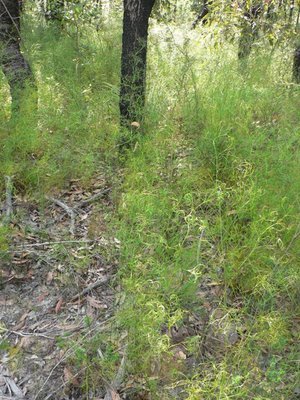 On a path, a dragon lizard basks. I think this is a Tympanocryptis diemensis, commonly called a mountain dragon.
On a path, a dragon lizard basks. I think this is a Tympanocryptis diemensis, commonly called a mountain dragon.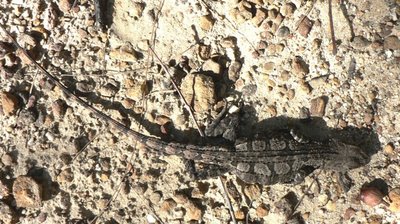
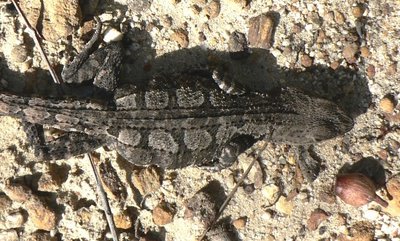 Here's a picture taken of another lizard, trustworthily labelled T. diemensis by a more herpetologically aware photographer, so you can compare the two as well.
Here's a picture taken of another lizard, trustworthily labelled T. diemensis by a more herpetologically aware photographer, so you can compare the two as well. 